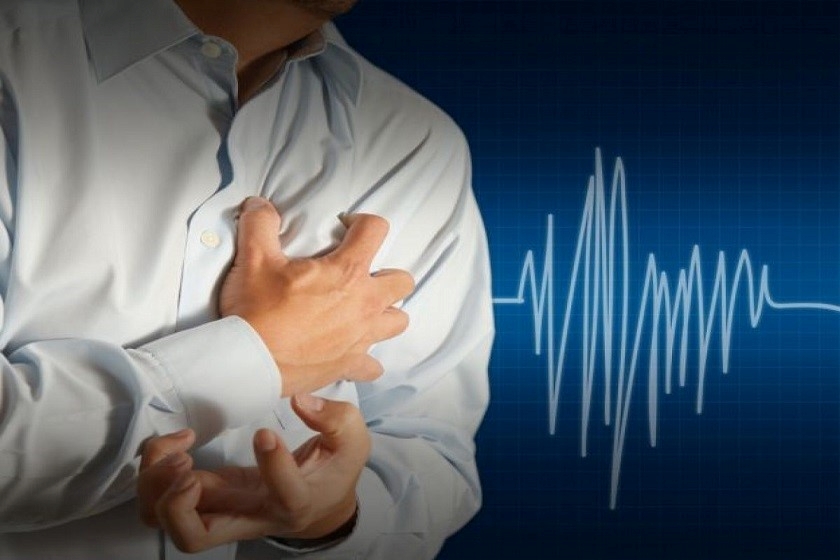
Altered heart rate: palpitations
Palpitations are caused by an increased frequency of the heartbeat. Almost always due to emotional stress, they can however be due to health-threatening arrhythmias
Palpitation is a symptom of increased heartbeat frequency
Increased heart rate can occur due to an illness or due to anxiety, stress or excitement.
Palpitations can be frequent and of shorter or longer duration.
They are the subjective manifestation of an accelerated heartbeat.
They can begin and end abruptly and may be accompanied by paleness, a sense of weakness (asthenia) and cold sweats.
The causes of palpitations can occur in a variety of different disease conditions and equally varied emotional situations.
The most common causes of palpitations are:
- Emotionality;
- Physical or psychic stress;
- Tachyarrhythmias;
- Orthostatic intolerance syndromes: standing causes an acceleration of the heartbeat, which can lead to fatigue, drowsiness and disorientation;
- Bronchodilator drugs used in the treatment of asthma and bronchospasm such as Salbutamol;
- Caffeine, nicotine, alcohol and substances of abuse such as cocaine.
The child may report a feeling of a pounding heart.
Only rarely are the symptoms more worrying:
- Sense of tiredness (asthenia);
- Dizziness;
- Drowsy state;
- Feeling of difficulty breathing;
- Chest pain;
- Fainting.
The assessment of the symptom palpitations or heart palpitations is often complex and ineffective.
This stems from the fact that palpitations are a symptom that can depend on a large number of different clinical conditions.
Moreover, the child often has no symptoms at the time of the initial assessment: palpitations are usually episodes that recur at unpredictable intervals and are also of short duration.
After listening to the history of the child and his family and examining him, the paediatrician may send him for a specialist cardiological examination.
The family history is important because it may lead to the suspicion of a hereditary heart rhythm disorder.
Palpitations, if deemed necessary, the cardiologist may request one or more instrumental examinations:
- Electrocardiogram;
- Echocardiogram;
- Stress test;
- Holter ECG (complete dynamic electrocardiogram) to record the child’s heart rhythm for 24 hours.
The results of these investigations allow the cardiologist to rule out or diagnose a heart rhythm disorder, i.e. an arrhythmia.
In most cases, no treatment is necessary.
At most, your doctor may advise you to reduce your consumption of drinks containing caffeine.
The situation is different if a cardiac arrhythmia has been diagnosed and requires specific therapy.
Read Also
Emergency Live Even More…Live: Download The New Free App Of Your Newspaper For IOS And Android
Electrocardiogram (ECG): What It Is For, When It Is Needed
What Are The Risks Of WPW (Wolff-Parkinson-White) Syndrome
Heart Failure: Symptoms And Possible Treatments
What Is Heart Failure And How Can It Be Recognised?
Inflammations Of The Heart: Myocarditis, Infective Endocarditis And Pericarditis
Quickly Finding – And Treating – The Cause Of A Stroke May Prevent More: New Guidelines
Atrial Fibrillation: Symptoms To Watch Out For
Wolff-Parkinson-White Syndrome: What It Is And How To Treat It
Do You Have Episodes Of Sudden Tachycardia? You May Suffer From Wolff-Parkinson-White Syndrome (WPW)
Heart: What Is A Heart Attack And How Do We Intervene?
Do You Have Heart Palpitations? Here Is What They Are And What They Indicate
Palpitations: What Causes Them And What To Do


